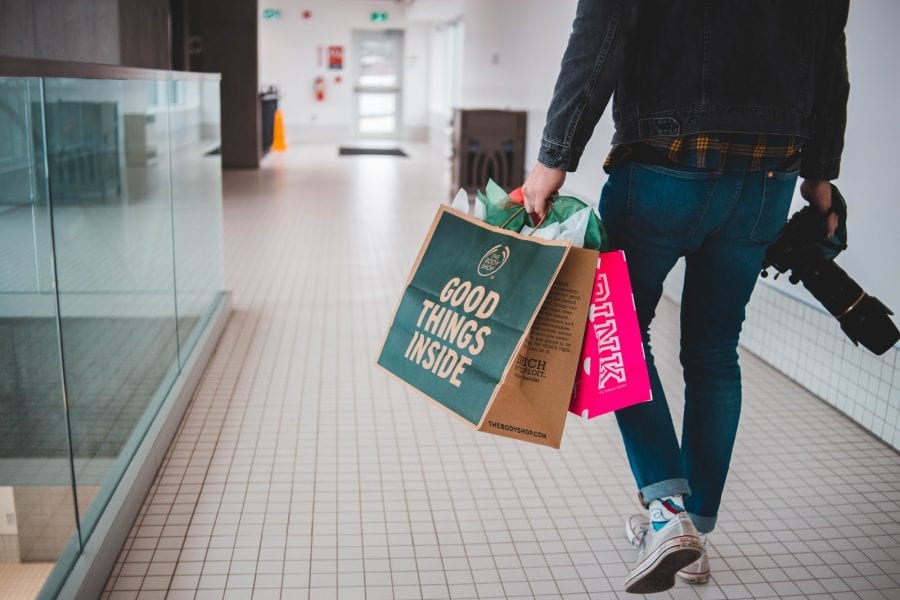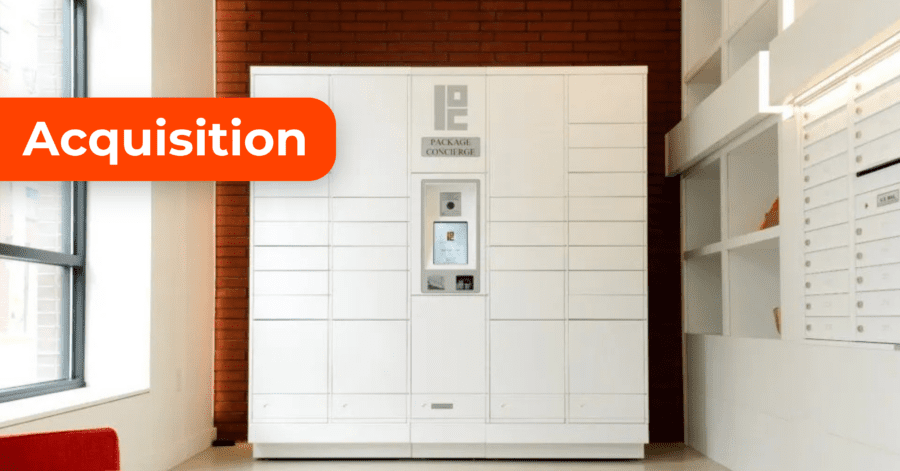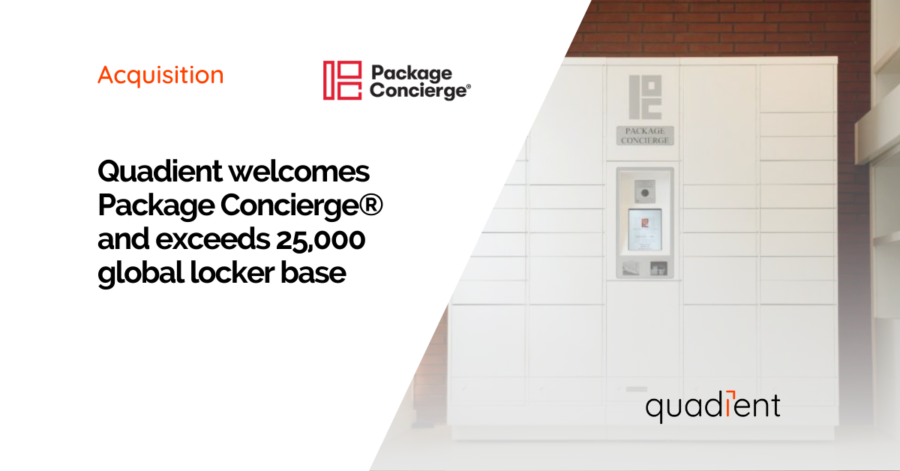Retail
The Best Ecommerce Supply Chain Strategy For Improved E-Commerce Success
Written by: Parcel Pending
9 Min Read
Published: July 22, 2019
Updated: March 29, 2023
In the last decade, the rise of e-commerce has fundamentally shifted the power relationship between consumers and retailers. Not long ago, retailers were able to set trends and dictate where consumers would retrieve goods, but the abundance of fulfillment options available to modern consumers has given them the power to dictate which companies thrive and fail. The keys have officially changed hands.
In light of these developments, many businesses—namely those that rely on brick and mortar stores to drive the majority of their revenue—have found themselves in a tricky situation. Competing with online retailers has become a massive and frustrating challenge, and failing to discover a timely solution can lead to financial difficulties or worse.
In this article, we’ll explain how an improved supply chain strategy can help brick and mortar retailers survive the rise of e-commerce and provide context for why that is by reviewing:
- The popularity of e-commerce and how it will continue to grow
- What customers expect from e-commerce exchanges
- The paradigm-shifting advent of omnichannel retail
- How the click and collect strategy can dramatically improve e-commerce and supply chain success
The Rise of Ecommerce
At the heart of e-commerce’s success is the convenience it offers consumers. Retail customers can browse websites for their favorite goods from wherever they are via mobile, purchase a variety of items, and reasonably expect them to be delivered within 24 to 48 hours.
Never before has it been so easy to shop, and companies that prioritize consumer convenience when generating their supply chain strategy will find the most success.
While many businesses understand that e-commerce is important to their financial future and that the effectiveness of their supply chain plays a major role in that process, reviewing the statistics related to e-commerce can drive home why making adjustments is so vitally important.
1.92 Billion Global Buyers
A study by Statistica calculated the number of digital buyers worldwide from 2014 to 2019 and predicted how many there would be by 2021. The results are, in a word, compelling.
- In 2014, there were 1.32 billion digital buyers worldwide, almost one-sixth of the world’s population at that time
- Since 2014, the proliferation of smartphones and advances in technology have only increased the number of online buyers
- 2019 is expected to field 1.92 billion global buyers, and by 2021 that number is expected to reach 2.14 billion
13.7% of All Retail Sales Will Be Conducted Online in 2019
Another study conducted by Statistica found that the percentage of retail sales conducted online has increased dramatically in the last several years, and the trend seems to be increasing.
- In 2015, the study found that only 7.4% of worldwide retail sales were conducted online, but by 2018 that number had increased to 11.9%
- This year, that number is expected to jump two percentage points, to 13.7%
- By 2021 the percentage of overall retail sales conducted online is expected to leap all the way to 17.5%
The takeaway? Businesses that don’t adopt efficient supply chain strategies will be overlooked by consumers who can acquire orders more easily from competitors.
Poor Customer Experiences Cause 80% of Customers to Walk
Finally, one particularly prickly problem for businesses in the e-commerce era is how finicky customers can be. This is largely due to the amount of options available to them, which further drives home the importance of an efficient supply chain.
- A study showed that up to 80% of people will stop frequenting a business after having a poor customer experience
- What constitutes a “poor customer experience” can range from a bad experience with an employee to having a challenging time fulfilling an order
Minimizing the number of customers who deem they’ve had a “poor experience” should be at the top of every business’ priority list. To do so requires an understanding of customer expectations, which, in turn, explains the rising popularity of omnichannel retail strategies that utilize click and collect to improve supply chain efficiency.
Customer Expectations
To understand why omnichannel retail strategies have soared in popularity and helped businesses increase revenue while competing in tough markets, it’s useful to understand how the rise of e-commerce has shifted customers’ expectations.
While the following list of expectations should be carefully studied, the clever observer will note that they are all guided by a similar theme: convenience.
- A retail website that is easy to navigate
- The ability to access products through a mobile device
- If applicable, a wide array of products
- Efficient delivery
- Hassle-free refunds and returns
Customers expect that their ability to locate, buy, receive and possibly return a product will be a painless process.
Website That’s Easy to Navigate
Everyone knows what it’s like to shop online through a website that is aesthetically unappealing and difficult to navigate. In fact, a whopping 69% of online shopping carts are abandoned by users, and it’s believed that this largely has to do with the amount of clutter that many websites force consumers to wade through.
Make sure that your website is easy to visually process and scroll through. It’s essential to the success of online sales. Every business has competition, and it’s too easy for consumers to turn to a competitor if they grow frustrated.
Mobile Access
Even if your business doesn’t have an app, making sure that your website is designed to accommodate mobile users is incredibly important.
- A study published this year found that 79% of smartphone users used their mobile device to make a purchase within the last year
Diverse Products
While your company may rely on a core product or two, offering a variety of products and solutions is a great way to keep customers on your website, returning to your store, and curious about what you have to offer.
Product diversity also helps businesses cultivate customer loyalty. A mix of products to choose from will keep your brand at the front of the customer’s mind and help with demand. It’s hard to understate the importance of customer loyalty when given the fierceness of e-commerce competition in any industry.
Efficient Delivery
Retail giants like Amazon have started to standardize next-day shipping practices. While not every company is expected to offer such quick turnaround times for deliveries, most customers expect that their order will arrive in a short, reasonable timeframe.
Hassle-Free Refunds and Returns
Companies that develop a reputation for possessing difficult return policies will have trouble maintaining customer loyalty in their industry. The expectation is that products that are ordered will be simple to return and that refunds of some variety will be available.
What is Omnichannel Retail and How Does it Affect Supply Chain Strategy?
By now, most retailers are familiar with the multi-channel retail management strategy. Instead of a single point of contact for customers to interact with your businesses—like a brick and mortar store—multiple-channels, including web and mobile apps, can increase the points of contact that a consumer has with a business.
Omnichannel retail, which has been dubbed the future of commerce, is a strategy which creates seamless integration between these disparate channels. The result is a streamlined sales experience for both consumers and employees. They are able to locate a product from any device and ensure that the product arrives to a store or delivery location that is as close as possible to the consumer.
The myriad benefits of an omnichannel retail strategy include:
- Easily trackable transactions
- Meet customers where they are
Simple to Track Transactions
It’s much easier to track transactions and keep tabs on sales trends when using an omnichannel retail strategy in comparison with a multi-channel retail strategy.
Where omnichannel retail strategies integrate all channels and produce a single pool of data, multi-channel strategies require each channel to be monitored individually and the results to be compiled.
Meet Customers Anywhere
Perhaps the greatest benefit of an omnichannel retail strategy is that customers can access your business from wherever they are. They are no longer limited to a single channel, and can seamlessly order and retrieve products.
This remarkable benefit also entails the necessary shift in supply chain strategy. In order to maximize the potential of omnichannel retail, businesses need to make multiple retrieval points accessible to customers. Parcel Pending smart lockers offer one of the most reliable methods for delivering on that promise.
Click and Collect
While click and collect has been a staple in the supply chain strategy of many UK businesses for years, it’s only now starting to gain traction in the United States. It functions as a component of an omnichannel retail strategy which allows shoppers to buy products wherever they are (click) and then retrieve those products from either the store or another convenient location (collect) established by the retailer. These types of fulfillment services speed up the shipping process and make it easier for customers to get their shipment.
The benefits to both revenue and the supply chain are numerous and virtually instantaneous once a pick-up point, such as a Parcel Pending locker, is installed.
- Customers have the option to pick up products from a variety of destinations
- Utilize Parcel Pending smart lockers for easy shipping and returns
- Increase foot traffic
- Encourage impulse sales
- Lower costs for retailers
- Keep up with e-commerce trends
Various Pickup Options
Click and collect offers consumers various pick-up options. When they order products online, they can pick up items from third-party destinations like convenience stores or shops near their home, they can pick up items in-store from locker systems like those crafted by Parcel Pending, or they can retrieve goods from a centralized click and collect hub.
This enhanced retrieval system instantly improves a company’s supply chain process and makes it easier for customers to both pick-up and return packages.
Utilize Parcel Pending Smart Lockers
Parcel Pending greatly enhances both customer and retailer experience. When a product is delivered to a Parcel Pending locker, it sends out an instant notification to the customer alerting them that their product is ready for pickup. For people on the go, this makes it easy to time and coordinate the retrieval process around their busy schedule.
Installing Parcel Pending lockers also allows retail staff to dedicate more of their time to in-store engagement, which allows them to drive further in-store purchases.
Increased Foot Traffic and Impulse Sales
It’s becoming increasingly difficult to drive foot traffic through brick and mortar stores, click and collect has the potential to change that. Instead of waiting for products to be shipped to their house, they can visit the store to retrieve the item immediately after purchasing it.
While inside the store, studies have shown that almost 50% of consumers will make an “impulse purchase,” realizing that they want something else before they return home. The boost in revenue provided by the impulse sales can be a difference maker for businesses that are struggling.
Lower Costs
With click and collect, delivery costs that would have been incurred by the retailers are instead absorbed by the shoppers when they travel to the store. This means retailers don’t have to pay for delivery drivers, rental vehicles, etc.
Keep Up with Ecommerce Trends
Click and collect is here to stay, and companies that refuse to jump on the trend will likely struggle.
- A Nielsen report from February 2018 found that most millennials would rather use click and collect than delivery for grocery shopping
- Another study found that by 2025, in-store purchases will be down 60%, and click and collect will account for 10% of total sales
- CNBC reported that 71% of US shoppers have taken advantage of a click and collect opportunity in the last year
In short, the trend that will revolutionize your supply chain will also keep your business on the cutting edge of sales trends.
Conclusion
Every trend, statistic, and news report points to one thing: e-commerce is here to stay. Businesses that embrace this change and learn how to streamline their supply chain through omnichannel retail and click and collect strategies will thrive. Those who don’t will be left behind.
When a business takes steps to improve its e-commerce supply chain, they see a boost in consumer growth, increase their average order value through impulse purchases, and see higher conversion rates due to increased foot traffic.
The only way for businesses to tap into this growth potential is by improving their existing infrastructure. There is no better way to do that than through investing in products like Parcel Pending retail lockers, which are smart, safe, and reliable.
Sources:
- Cart Abandonment Stats: Tackling Shopping Cart Abandonment in 2019. (2019, April 3). Retrieved May 14, 2019, from https://moosend.com/blog/cart-abandonment-stats/
- Curb Appeal: Are You Ready for Click & Collect? (2018, February 14). Retrieved May 15, 2019, from https://www.nielsen.com/us/en/insights/news/2018/curb-appeal-are-you-ready-for-click-collect.html
- Smith, J. (2019, April 22). Mobile eCommerce Stats in 2018 and the Future Online Shopping Trend of eCommerce. Retrieved May 17, 2019, from https://www.outerboxdesign.com/web-design-articles/mobile-ecommerce-statistics





